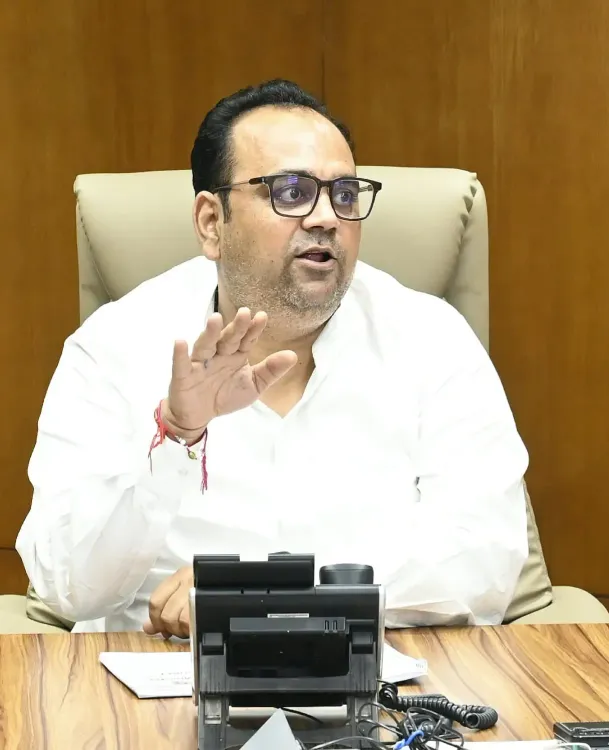Are 18 Bus Routes Set for Rationalisation in East Delhi with IIT's Help?

Synopsis
Key Takeaways
- 18 bus routes identified for rationalisation in East Delhi.
- Support from IIT Delhi ensures effective implementation.
- Aim to enhance last-mile connectivity and reduce congestion.
- Introduction of 3,800 electric buses to support green mobility.
- Phased implementation for smooth execution.
New Delhi, Sep 11 (NationPress) With expert guidance from IIT Delhi, a total of 18 public transport bus routes have been earmarked for rationalisation in the Trans-Yamuna region, as announced by Delhi Transport Minister Pankaj Kumar Singh on Thursday.
The objective of this rationalisation initiative is to enhance commuter experience, alleviate traffic congestion, and improve last-mile connectivity by strengthening links with metro stations and vital industrial hubs, according to the Minister.
"This route rationalisation is a pivotal move towards creating a more commuter-friendly environment in the Trans-Yamuna area and mitigating congestion. Our aim is to deliver reliable, affordable, and eco-friendly last-mile mobility solutions to every resident of Delhi,” he stated.
The approved rationalisation strategy will be rolled out in phases to guarantee smooth implementation and maximum public benefit, the Minister added.
This rationalisation effort is strategically crafted to extend bus services to the most overlooked areas, alleviating concerns in previously underserved localities and connecting over a thousand bus stops, thereby ensuring inclusive and accessible public transport for everyone, he mentioned.
The newly designed routes will enhance last-mile connectivity, ease traffic congestion, and provide direct access to industrial zones like New Mandoli, Patparganj, and Tahirpur, while ensuring that neglected residential areas are better connected with Delhi Metro services.
In alignment with the government's commitment to green and seamless mobility, 3,800 electric buses have been introduced to fortify the bus fleet, benefiting nearly 40 lakh daily commuters in Delhi, the Minister highlighted.
Through initiatives like route rationalisation, the government is diligently striving to transform DTC from a deficit entity into a more effective and financially viable service provider.
The Minister noted that the Rekha Gupta administration has added 3,800 electric buses within the last six months since taking office, which has greatly improved last-mile connectivity.
“In the coming six months, Delhi will experience a noticeably enhanced and robust public transport system. Simultaneously, we are addressing the issues on the Outer Ring Road, which will provide essential relief from congestion and further streamline traffic across the city,” stated Dr. Singh.










